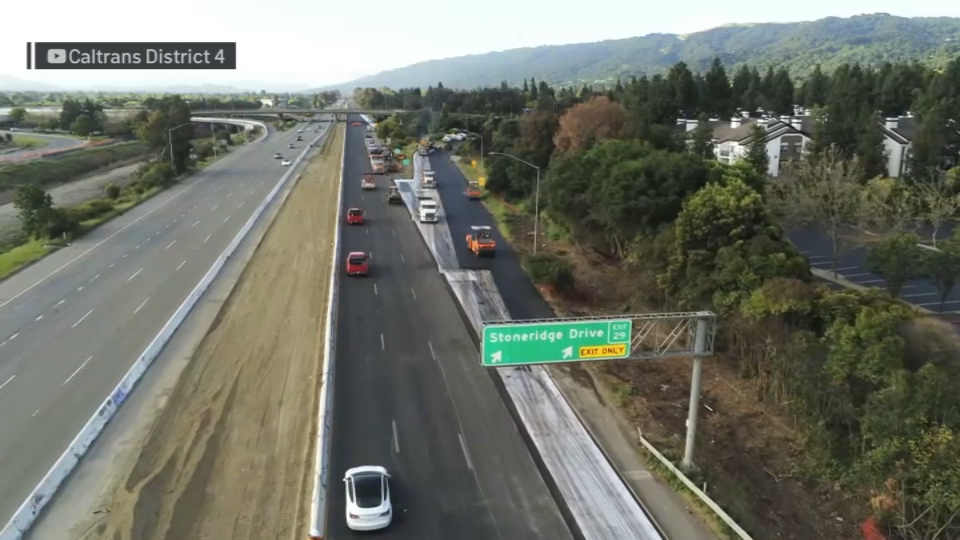Wineries and vineyards dot the landscape of Livermore with brand new homes and schools popping up right next to them. It’s this picturesque atmosphere that drew Paola Reyes to the East Bay town. “We thought, ‘this is Livermore. This is wine country.’ Everybody wants to live next to a vineyard,” Reyes said.
The beauty, however, soon became overshadowed by her family’s illnesses, and nobody knew why it was happening. “Things were at a breaking point with my family,” Reyes said. “My son’s health, especially, to the point where he couldn’t go to school, and I looked at the vineyard and I said, 'Oh my God, maybe it’s the vineyard. They must be spraying something at that vineyard.'”
Reyes started researching. She requested records from Alameda County, which showed pesticides were being sprayed at the vineyard next to her home. “The first thing I thought when I found this information was, ‘This charter school is going to open in a few months and I need to inform the principal,’” Reyes said.
She sent multiple emails, including the pesticide reports, but only received an email response from the former leadership of the Livermore Valley Charter School Parent-Teacher Organization, which said, in part, “I do find it hard to believe that the vineyards behind our school would use any pesticides. The state would have never allowed them to use pesticides near any school campus.”
In fact, state law does allow it, leaving the decision as to what to do with that information with individual counties. Reyes never got a response from anyone at the school on the issue and parents were never informed.
Records obtained by the NBC Bay Area Investigative Unit show pesticides were sprayed months later on school days.[[283524271, C]]
The head of Livermore Charter School defended the school’s decision not to notify parents: “The simplest answer I guess is that it was a one time a year process,” said Bill Batchelor, CEO of the Tri Valley Learning Corporation, which includes Livermore Valley Charter School.
Local
In fact, the spraying happened over several days. Batchelor said he only learned about it after the pesticide spraying took place, but conceded there could have been a better process. “We weren’t notified by the county. We weren’t notified by the vineyard itself,” Batchelor said.
Several reports, including one published in 2012 by the Journal of the American Academy of Pediatrics, found a link between health problems and pesticide exposure for young children. “In the short term we worry about kids having skin and eye irritation. They can have headaches. They can have nausea,” said Dr. Alice Brock-Utne, an East Bay pediatrician who contributed to the report. “Even if you get an exposure today and that has no effect on you today, it’s possible over time, when you are being continuously exposed, you can still have long-term effects.”
In San Bernardino County, schools sit just feet away from farms where pesticides are sprayed. That’s why that county created the School Protection Act, which requires farms to notify the county at least 24 hours before spraying.
“Reporting it afterward doesn’t do much except tell us what was used,” San Bernardino Deputy Agricultural Commissioner Allen Lampman said. “We do encourage the grower to contact the school, and quite a few of them do because that directly tells the school what’s happening, when it’s happening and how it’s happening.”
After the Investigative Unit contacted both Alameda County and Livermore Valley Charter School, they sat down to discuss the issue and are now making changes. “We’re going to get more proactive,” said Alameda County Agricultural Commissioner Scott Paulsen. We have a work plan, and we’re going to amend the work plan for further outreach for schools and vineyards.”
Batchelor said the school will start notifying families going forward:
“Assuming that the vineyard is cooperating with us and notifying us, obviously we’ll notify our families so they can make the decision of whether to send their student to school that day,” Batchelor said. “Our goal is actually to alleviate from happening during the school year.”
It’s exactly what Paola Reyes wanted to see happen a year ago. She can’t prove her family’s sickness was directly related to the pesticides sprayed at the vineyard, but she’s since moved away. “I can tell you, we felt ill when we moved here. We got better when we moved out. We were seeing doctors on a weekly basis when we were living here. We haven’t seen a doctor in a year since we moved out,” Reyes said.
NBC Bay Area reached out to the company that leases the vineyard, Diamond West Farming, numerous times. No one from the company gave us a statement.



